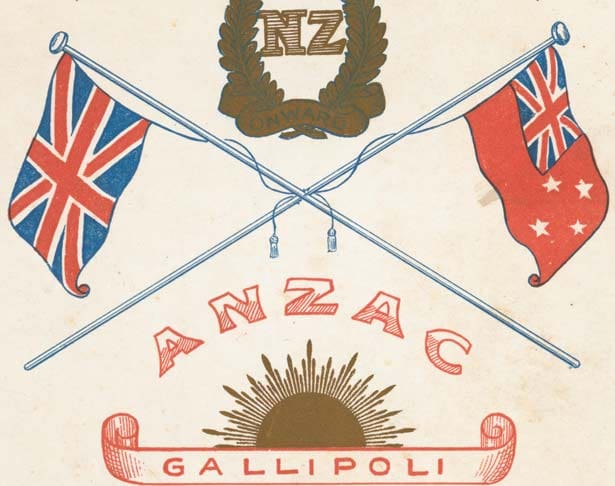According to a parliamentary briefing, all references to the Anzac legend as ‘contested’ have been removed in a proposed draft of the national history curriculum. The new syllabus seeks to emphasise “the importance of our Western and Christian heritage” in our country’s development as a “prosperous and peaceful democracy”. The proposal attempts to politicise and control the teaching of history, restricting educators to a one-dimensional syllabus with potentially devastating consequences.
The initial draft of changes was released for consultation in April 2021. The proposals were to be largely progressive, designing a more inclusive syllabus that embraced multiculturalism and First Nations perspectives, including a reference to British “invasion”.
In September 2021, then Education Minister Alan Tudge appeared in a Triple J interview to raise his objections to the April proposal. Tudge focused on the curriculum’s Anzac commemoration content – a change not flagged in previous reporting – and asserted that references to Anzac as “contested” would contribute, alongside an increased focus on more negative aspects of Australia’s history, to students developing a “hatred” for Australia.
Tudge claimed that Anzac Day should be “presented as the most sacred of all days in Australia, where we stop, we reflect, we commemorate the hundred thousand people who have died for our freedoms”.
Tudge also claimed that if Australia’s “great successes” were not stressed to students, they would not “protect [Australia] as a million Australians have through their military service”.
Tudge’s comments represented clear political interference in the Australian Curriculum, Assessment and Reporting Authority’s (ACARA) drafting process, and have resulted in controversial changes. Jordan Lee*, a Sydney-based teacher with over ten years of history teaching experience, Lee believes such a prescriptive curriculum “goes against the nature of history… and the essence” of delivering a historical education.
In particular, Lee argues the changes regarding the Anzac legend are inherently paradoxical: “the assertion that the legend isn’t contestable demonstrates that it is”.
Tudge’s complaints about the Anzac legend in the new syllabus draft are doubly problematic given the previous syllabus considered the contestability of the Anzac legend. Students were asked to “explain different perspectives of the Anzac legend”.
“It is important for students to understand that there isn’t one view of history,” states Lee.
The new syllabus might also interfere with teaching Vietnam War content, Lee suggests. “Take the Australian public, who thought they were fighting a just war against Communism versus the Vietnamese, who were fighting a nationalist war”.
Further, a monolithic delivery of education regarding the Anzac legend will marginalise students with diverse cultural backgrounds and different family histories.
“If you ignore contested histories, you ignore sectors of society. Teaching the Anzac legend as Anglo knights in shining armour alienates people from the mainstream,” says Lee. In the long term, this could return history to an overwhelmingly “white, middle class, male discipline” in a sphere that still struggles with diversity.
“[There is] real sentiment that history teachers are just not consulted on these changes,” says Lee, noting that teachers have only been informed of the draft by media leaks. The ACARA Board, responsible for the drafting of this syllabus, is populated by senior education professionals. Political interference in the curriculum drafting process directly contravenes the experts on historical education.
Those studying education express similar sentiments. Lachlan Good, an Arts and Secondary Education student at the University of Sydney, believes the “changes represent a backslide in the integrity of our syllabus”.
Good believes a “history education should prepare young people to engage critically with the past, and probe the diverse ways it has been understood.”
“Humanities teachers are trained to centre the needs of students, particularly the development of their communication and critical thinking skills. We are also expected to deliver syllabus content consistently. It will be difficult to teach a skewed, state-sponsored rendition of history to high school students without contradicting these principles.”
This could create an environment where “a generation of young people […] will later distrust their history education” and force students to choose between “writing a clear and convincing argument, and writing what they think the syllabus wants them to argue,” Good suggests.
History is centred around contention: an inherently subjective discipline. It engages with a multitude of perspectives to produce often conflicting narratives about the past. It is also highly political and may provide individuals with a sense of belonging and identity. When reactionary forces intervene to impose their historical narrative on the curriculum, students lose a healthy conception of their place in Australian society. When history teachers are asked to contradict the essence of their training, there will be longstanding consequences.
However, there is some hope – Lee’s interview suggests that the backlash to such unprecedented changes may be enough to prevent them. Additionally, teachers may adapt their teaching to intervene with the syllabus – just as Lee was forced to with regards to the Frontier Wars, which are glossed over in the current syllabus – in order to deliver a comprehensive and engaging historical education.
*Name has been changed.





